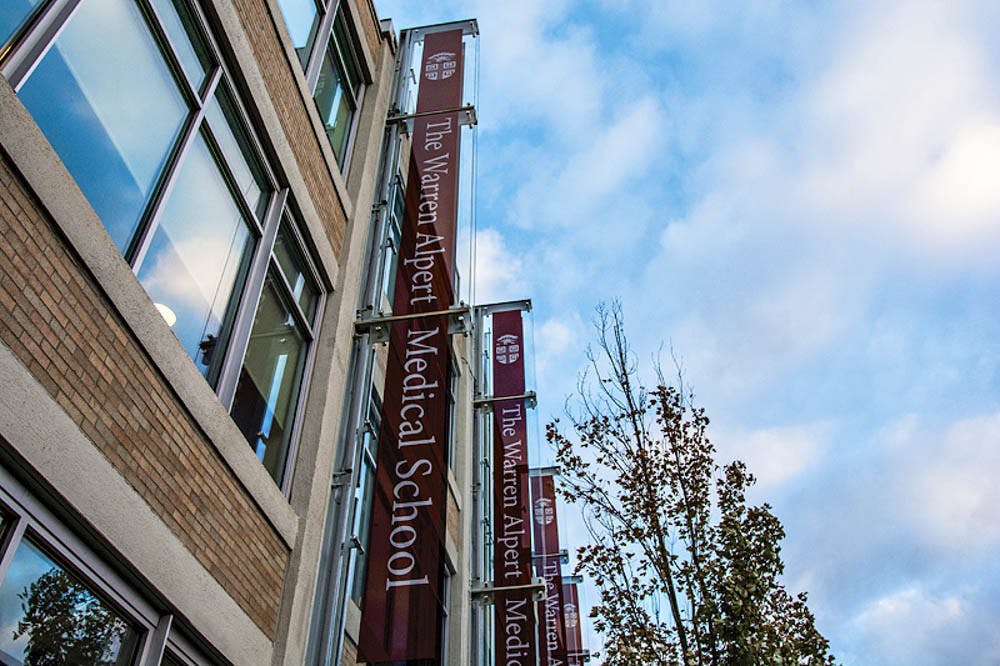Former Clinical Assistant Professor of Orthopaedics Jerrold Rosenberg was sentenced to 51 months in prison Friday for health care fraud and for receiving kickbacks from Insys Therapeutics in return for prescribing Subsys — a highly addictive opioid — to his patients.
Rosenberg was indicted Feb. 1, 2017, according to the court documents. He served at the University for nearly 30 years and left his position June 30, 2017, wrote Brian Clark, director of news and editorial development, in an email to The Herald. Clark declined to comment further on the reasons for Rosenberg’s departure.
Subsys, a more powerful version of the opioid Fentanyl, is an under-the-tongue spray designed to rapidly disperse painkillers to cancer patients’ vital organs. Because of the risk of misuse, abuse, addiction and overdose for patients taking the drug, the Food and Drug Administration has approved its use solely for “the management of breakthrough pain in cancer patients … who are already receiving and who are already tolerant to opioid therapy for their underlying persistent cancer pain,” according to Rosenberg’s indictment.
However, 63-year-old Rosenberg prescribed the spray to many patients who did not qualify for it under the FDA rules, some of whom did not even have cancer. He falsely diagnosed these patients with cancer in their medical records at his practices at 827 North Main St. in Providence, and, later, 1637 Mineral Spring Ave. in North Providence. Nevertheless, Rosenberg claims he “never knowingly mis-prescribed Subsys,” the Providence Journal reported.
Eight of Rosenberg’s patients suffered from sustained bodily injuries as a result of his inapropriate prescription. When using Subsys or withdrawing from it, each of these patients experienced some combination of sleepiness, loss of appetite, weight loss, drug overdose, disorientation, shaking, sweating and vomiting. One patient said Subsys “made him ‘feel like a zombie,” according to court documents. Despite his patients’ complaints, Rosenberg refused requests to switch from Subsys to another medication, the court records state.
Rosenberg prescribed Subsys inappropriately because of financial incentives. In 2012, Insys Therapeutics, the pharmaceutical company that manufactures Subsys, established a program incentivizing doctors to educate other health care providers about the drug. “In reality, the primary purpose of the Speaking Program was to provide a financial reward to providers who were prescribing large amounts of the Fentanyl Spray and to incentivize those providers to continue to prescribe the Fentanyl Spray in the future,” according to Rosenberg’s indictment.
Doctors who spoke at these programs were paid a flat fee anywhere from $1,000 to several thousand dollars per session. The pharmaceutical company made it clear to doctors that the more they prescribed Subsys, the more speaking engagements the company would offer. Rosenberg received roughly $180,000 from the 91 presentations he gave advertising Subsys, his indictment stated.
Even the programs at which Rosenberg spoke were fraudulent. Many of the events took place at high-end restaurants such as the Capital Grille in downtown Providence. The pharmaceutical company paid the costs of guests’ meals, which could run up to $125 per person. At many of the speaking programs, “the only attendees were Rosenberg’s family and the Pharmaceutical Company sales representative,” his indictment stated. Rosenberg regularly forged sign-in sheets and ordered extra meals to make it seem like other medical professionals actually attended the events.
Rosenberg’s son also served as a local sales representative for the pharmaceutical company from June 2012 through Sept. 2013. He worked on commission and received a greater income as a result of his father’s prescriptions, according to court records.
Rosenberg and his defense attorney, Charles Tamuleviz, believe that the prosecution’s supplemental summaries of Rosenberg’s patients’ claims against the doctor were “misleading,” Tamuleviz said. In two cases, patients’ overdoses could not specifically be traced back to Rosenberg’s prescription of Subsys. One patient said she overdosed because of Subsys, but her toxicology report found no opiates in her system. “He did what he did, he accepted responsibility for it, he pled guilty for it, but at the same time he shouldn’t be held responsible for things that the evidence doesn’t establish he’s responsible for,” Tamuleviz said.
“You, in effect, sold your medical license to a pharmaceutical company,” said U.S. District Court Judge John McConnell Jr. at the sentencing, the Providence Journal reported.
On top of his 51 months in federal prison, Rosenberg must pay $754,736 in restitution, according to a press release from the Department of Justice.
Updated March 16, 2018 at 6:08 p.m. to include Jerrold Rosenberg's title and the fact that his illegal activities took place at his private practice in the photo caption.





